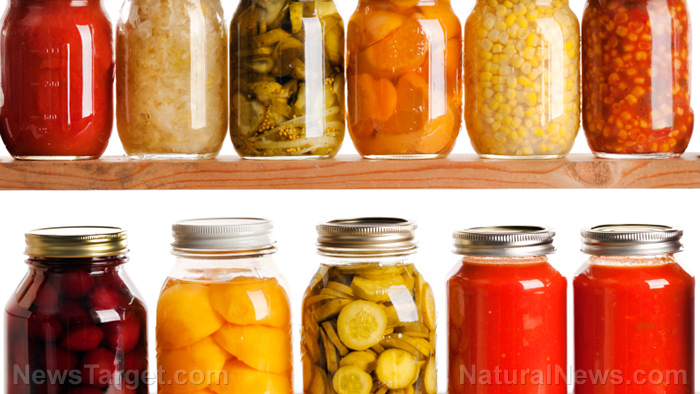15 Items you should NEVER spend money on when prepping
Sunday, August 20, 2017 by Russel Davis
http://www.bugout.news/2017-08-20-24-items-you-should-never-spend-money-on-when-prepping.html

Prepping is a great way to get yourself mentally and physically equipped in the event of a disaster or calamity. It has also been an effective way to start living a more frugal lifestyle in preparation for uncertain events in the future. While prepping usually involves stockpiling ovarious essentials — such as food and water, tools and supplies — you can still prepare for your future needs without breaking the bank. An article posted on the Ask a Prepper website features some tips on effective prepping while staying true and in-line with your budget. Here are a few items you don’t need to spend money on when prepping.
Food items, preserves, and more
- Dehydrated foods – Dehydrating leftovers such as rice, pasta, and beans are an effective and less costly way of prepping for food supply. Dehydrated items need only a few minutes in boiling water to regain their flavor, which means they always come in handy regardless of the situation. Likewise, leftover fruits can be dehydrated for future use. In addition, bread and pasties can also be dehydrated and used as instant stuffing mix.
- Meats and meat dishes – Leftover meats and meat dishes are an excellent food option for prepping. These leftovers can be canned for future use. Just make sure that you follow the proper canning procedure.
- Free fruit from trees – Fruit trees are an ideal go-to food items for preppers, especially if the neighborhood is teeming with it. You can ask for a few or buy your neighbor’s fruits as the trees yield more than a family could consume. This way, you not only get the fruits either free or discounted, but also prevent them from being wasted through spoilage. Fruits can be turned into jams, preserves, and even dehydrated to extend their shelf life.
- Food samples – Food storage companies allow customers to ask for free samples as a way of marketing their products. Free food samples obtained from this companies may prove handy in the future.
- Free formula – Coupons do include baby formula in their list. This works well for young mothers.
- Drinking bottles – Washing drinking bottles and reusing them reduces the need to spend more money on buying additional bottles.
- Condiment packs – Condiment sachets are usually given in fast food restaurants. Use what’s always left of the drive-through take-out.
- Using craigslist – There are people who tend to log on to craigslist to dispose off unused food items such as beans and rice. Gardens also tend to give away free vegetables when harvest season is booming. However, you must always exercise caution when meeting people online.
- Stacking up on coupons – Coupons are a great way of getting food for free. Coupons may even get you free pasta, bread mixes, and some frozen foods.
- Reusing vegetables – Vegetable cutouts often sprout new growth if the conditions are favorable. It always proves useful not to throw away the cutting and reuse them to grow another batch of vegetables.
Furniture, emergency supplies, and others
- Spotting furniture – Discarded furniture and fixtures may still find a new purpose given the right treatment.
- Buckets – Commercial kitchens usually allow customers to get free buckets, which are usually sitting just outside their establishments.
- Sand bags – Depending on your area, some neighborhoods provide free sandbags and sand in preparation for hurricanes. Likewise, stock up on pine cones as they make good kindling for fire.
- Watch out for coupons – Keep an eye out for coupons that may help you save on emergency equipment such as small LED flashlights, headlamps and tarps.
- Medicine – Obtaining free medicine can be a bit challenging, but refilling your prescriptions a few days early each month can help you slowly accumulate free ones.
Sources include:
Tagged Under: Tags: Food storage, food supply, prepping, survival, survivalist

